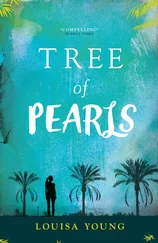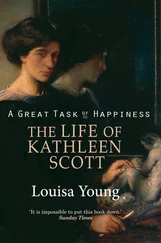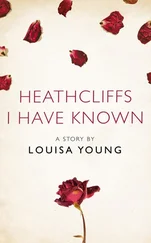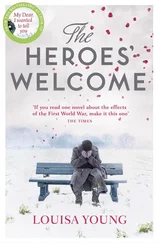Scotland?
No.
‘Then I’m going to join the VAD,’ she said blandly. ‘I’m going rather mad here, knowing there is so much to do and not doing anything. I have been reading all about it. I shall take all my frustration out on sheets.’
‘No,’ said Jacqueline, immediately, instinctively.
‘Well, I must do something, Mama. I think that’s a fair choice, the Slade or the VAD.’
But Jacqueline could only see it as men, or more men. Artistic, immoral men, with attractively long hair and no prospects, or broken, heroic, half-naked men in desperate need . . . Getting Riley out of the way was one thing, but there were always more men: wrong ones, new ones, ones outside the systems of safety . . . Lord , she thought, it used to be so much fun playing with fire, back when everything was safe.
The wounded, she decided, would be less attractive to her daughter than the artists.
*
While scrubbing, boiling, lugging, hanging, pouring, twisting and folding made up most of Nadine’s duties at London General Number 2, Chelsea, the reality of blood and flesh was also available to her, and she saw it. It was a shock, and she was by no means sure at the beginning that she would be able to stay in the hospital. To strengthen her nerve, she blackmailed herself, imagining that each boy was Riley, and she was some French or Belgian girl . Each shattered leg she saw became his leg; each twisted arm was his arm; each pale and sweaty brow was his handsome brow; each gunshot wound settled itself into his flesh. It both brought her closer to them and protected her from them. But what started as a spur and a naturally arising technique of self-protection developed with pandemic haste into a morbid, almost-constant fantasy about the terrible things that might be happening to him.
Jean, older and wiser, with reddened knuckles and a pot of rouge number two in her bag, said to Nadine, over biscuits and Bovril, one carbolic-scented night-shift, ‘You’re ill-wishing him. Don’t. God didn’t give you an imagination so you could use it to worry all the time.’
So Nadine saved Riley’s letter till Jean was not there. It burnt in her apron pocket. But, oh, the circumstances of the letter faded into nothingness at its contents. He might as well have leapt out of the envelope in person, telling her everything as clearly as he always had, which now were these impossible things, these things that swept her every previous concern to the eight winds. He hadn’t written? Oh, diddums. He had gone away? Poor little you.
I don’t exist.
How can that be? She read it again.
Is it so bad that there is no room in the same dimension of creation for both it and him, and that as it is all-powerful, he must cease to exist?
That’s the wrong way round, surely. Surely it must cease to exist, because he, palpably, does . . . It. It. A gigantic amorphous It, and a little speck of warm flesh and blood standing in front of It, in the middle of It, fading away.
She thought of his eyes and his mouth, his jokes and his intensity. She remembered him up the tree, popping out from among the sun-spattered chestnut leaves, their sharp folds. She thought of that first snowball, and his black curly hair, like hers but different, and how even then she had liked how he was like her but different. She pictured a little brain and a little heart buffeted to and fro inside a cloud of smoke and flash and shrapnel. She remembered the hardness of the wood of the trestle table under her thighs, bare legs for the spring day, the moment like lightning, when a link had flashed awake, body mind heart, and for the first time she had felt herself connected to herself.
*
My dear Riley,
What can I say to you now? I only want to say what will help to make you stronger and perhaps happy, but at the same time, if you don’t exist, then you won’t want to hear from me at all, as I will only remind you that you do exist, with a past and a future and people who love you, but then you know at heart that you do – but if you find it better for now to put away that knowledge then perhaps this isn’t the moment to mention it, so I won’t . . . but I WON’T send you a letter of ‘hope this finds you as it leaves us and Mother and Father send their regards’ . . . not to scorn the people who do that . . . and of course Mother and Father do send their regards, or at least I’m sure they would if I ever saw them, at least, Father would, though Mother would say – actually not say, just look , that I shouldn’t be writing to you at all – she has become more and more proper since the War began, unlike everybody else who does exactly the opposite – she lives in fear of chaos and freedom, which she thinks are the same thing, and much more dangerous than the Hun. She is hardly artistic at all any more and has taken to wearing stays again, just when everybody else is giving them up – goodness, how she would disapprove of my mentioning that – but I only see them once a week now if that and I’m not waiting till next week to write back to you just to be able to send their regards. Reading back, that doesn’t quite make sense but I think you will see what I mean.
Riley, I was so happy to hear from you, so utterly happy that I sang on the ward, and Sister gave me such a look and asked, so I had to tell her that I had had good news, that someone I feared might be lost was not lost after all – because for all you say you don’t exist and for all I respect that and your reasons for having to think it, Riley, you do! Riley exists! And that alone, dear Riley, makes me so happy that I sing. Oh, now I’ve done it –
But surely it is the really existing which will keep you sane for after it’s all over? We’ve had some shell-shock cases in here and oh, Lord, Riley, I don’t know how anyone can decide which needs to be fixed first, their broken limbs and wounds or their broken minds. I can tell you what I do: an awful lot of washing and cleaning. Piles of sheets that would stretch to Paree, dreams of wading through Keatings and Lysol . . . But I have two special talents: first, I speak French. So sometimes I am called from cleaning to speak French or translate something, though more often it’s talent number two: I don’t faint at blood. So I am called on to help clean up in the operating theatre, and I have seen such sights – my God, Riley – well, you will have seen them too, and at closer quarters. Why do I tell you this? Because I want you to feel a bit less alone. And it can’t go on much longer. Governments will just have to take a look at the hospitals and see straight, at what is happening, and they’ll stop.
Конец ознакомительного фрагмента.
Текст предоставлен ООО «ЛитРес».
Прочитайте эту книгу целиком, купив полную легальную версию на ЛитРес.
Безопасно оплатить книгу можно банковской картой Visa, MasterCard, Maestro, со счета мобильного телефона, с платежного терминала, в салоне МТС или Связной, через PayPal, WebMoney, Яндекс.Деньги, QIWI Кошелек, бонусными картами или другим удобным Вам способом.
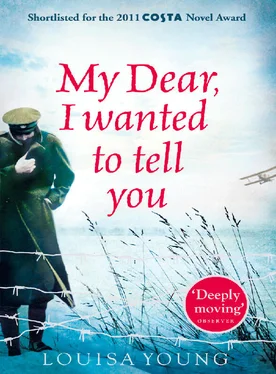
![Ally Carter - [Gallagher Girls 01] I'd Tell You I Love You But Then I'd Have to Kill You](/books/262179/ally-carter-gallagher-girls-01-i-d-tell-you-i-lo-thumb.webp)


